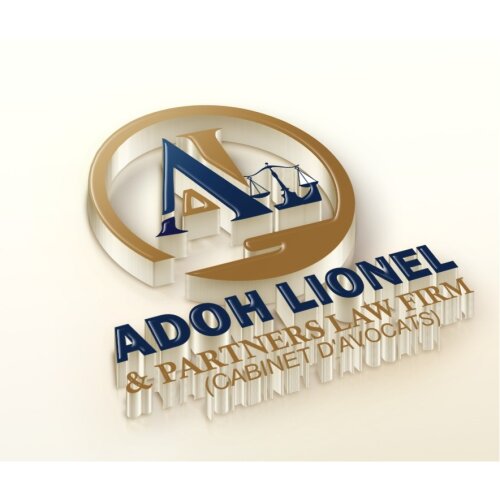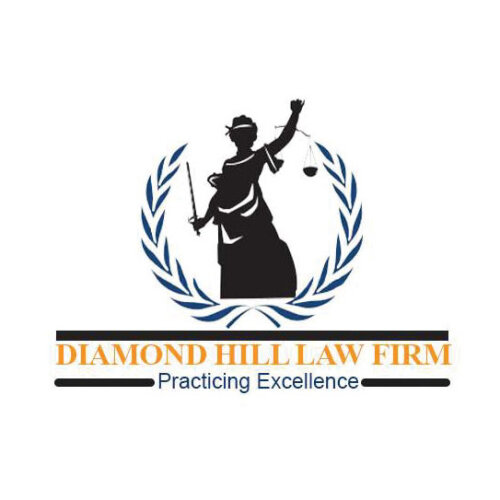Best Water Law Lawyers in Douala
Share your needs with us, get contacted by law firms.
Free. Takes 2 min.
List of the best lawyers in Douala, Cameroon
About Water Law in Douala, Cameroon
Water Law in Douala, Cameroon refers to the body of legal rules and regulations governing the use, management, conservation, and distribution of water resources within the city and surrounding regions. Given Douala’s status as the economic capital of Cameroon and its strategic position near the Atlantic coast, water resources are crucial both for domestic consumption and economic activities such as industry, agriculture, and shipping. Water Law covers rights relating to access, use, pollution control, and infrastructure development, aiming to balance public interest, environmental protection, and individual rights.
Why You May Need a Lawyer
There are various situations in which people and organizations in Douala may require the expertise of a Water Law lawyer:
- Resolving disputes over water usage rights among neighbors, communities, or industries
- Advising companies on legal compliance before undertaking projects that impact water sources
- Representing individuals or groups in cases of water pollution or contamination affecting homes or businesses
- Assisting in obtaining permits for water abstraction, boreholes, irrigation, or industrial projects
- Challenging administrative decisions relating to water tariffs, quality, or access restrictions
- Helping communities defend access to traditional or communal water sources threatened by new developments
Water issues in Douala are often complex, involving multiple stakeholders, environmental factors, and government agencies. Legal assistance can clarify rights, prevent conflicts, and ensure that your interests are fully protected under the law.
Local Laws Overview
Several national and local regulations shape Water Law in Douala. The main legislative instrument is Cameroon’s Water Code (Law No. 98-005 of 14 April 1998), which provides the framework for water governance nationwide. Key aspects relevant to Douala include:
- Ownership of Water Resources: The state is the principal owner of water resources. Individuals and organizations may use water under established rules and permissions.
- Licenses and Permits: Any significant abstraction, diversion, or commercial use of surface or underground water typically requires a formal license or permit from relevant authorities, such as the Ministry of Water and Energy.
- Water Pollution Control: Discharging pollutants or waste into watercourses is forbidden without prior treatment and authorization. Offenders face penalties under environmental and public health laws.
- Water Supply and Distribution: Urban water supply is managed predominantly by public utilities, subject to regulation of tariffs, quality, and infrastructure investment.
- Dispute Resolution: Legal disputes may be settled through negotiation, administrative review, or court proceedings, depending on the matter’s nature.
On a local level, Douala’s municipal authorities may set additional rules regarding water infrastructure, sanitation, and community water points, complementing national legislative requirements.
Frequently Asked Questions
What rights do individuals have to access water in Douala?
Every individual has the right to reasonable access to clean water for domestic use. This right is subject to conditions set by public utilities and regulations concerning pricing and availability.
Can private companies own or control water sources?
No. Water resources are under state ownership. Private entities can obtain usage rights through permits but do not own the water sources themselves.
How can someone obtain permission to drill a borehole on private property?
You must apply for a borehole permit or license from the Ministry of Water and Energy or its local delegation, demonstrating that the development will not negatively affect public interests or water quality.
What are the penalties for polluting water in Douala?
Penalties may include administrative fines, cleanup orders, and in serious cases, criminal prosecution. The specifics depend on the extent and nature of the pollution.
Can communities challenge commercial projects that threaten their water sources?
Yes. Affected communities may petition government authorities, initiate mediation, or take legal action if approved projects put communal water access or quality at risk.
Who is responsible for providing public water supply in Douala?
Public utilities, under oversight from the Ministry of Water and Energy, are responsible for urban water provision. Local government may also play a role in infrastructure development.
What should I do if my drinking water is contaminated?
Report the situation immediately to health authorities and the local water provider. If not resolved, consult a lawyer to explore remedies and possible legal action.
Is agricultural use of river water regulated?
Yes. Large-scale abstraction or diversion for irrigation requires compliance with legal procedures, including obtaining relevant permits and adhering to usage conditions.
Are there special protections for wetlands or mangroves in Douala?
Certain sensitive water ecosystems may be subject to additional environmental protections under national law and international agreements. Development activities may be restricted in these areas.
How are disputes over shared water points resolved?
Such disputes can be addressed first through negotiation or mediation facilitated by local leaders or authorities. If unresolved, formal complaints can be filed leading to administrative or court intervention.
Additional Resources
If you need more information or assistance on Water Law in Douala, consider reaching out to the following bodies and organizations:
- Ministry of Water and Energy (Ministère de l’Eau et de l’Energie)
- Douala Urban Council (Communauté Urbaine de Douala)
- Cameroon Bar Association (Ordre des Avocats du Cameroun)
- Local offices of the National Water Corporation of Cameroon (Camwater)
- Regional environmental agencies for advice on pollution and ecosystem concerns
- Non-governmental organizations focused on water access and environmental protection
Visiting these institutions or their websites can help you understand the procedures, legal requirements, and support available for specific water-related issues.
Next Steps
If you require legal assistance regarding Water Law matters in Douala, consider the following steps:
- Identify and clearly define the issue you are facing, gathering any relevant documents or evidence
- Contact a qualified lawyer with experience in Water Law or environmental law in Cameroon
- Consult the Ministry of Water and Energy or municipal authorities for administrative procedures or permit applications
- Engage with local community leaders or associations if the matter involves communal water sources
- Keep records of all communications, applications, and decisions for reference in case of legal disputes
Professional legal advice is critical to navigating complex Water Law matters, safeguarding your rights, and ensuring compliance with all applicable regulations in Douala, Cameroon.
Lawzana helps you find the best lawyers and law firms in Douala through a curated and pre-screened list of qualified legal professionals. Our platform offers rankings and detailed profiles of attorneys and law firms, allowing you to compare based on practice areas, including Water Law, experience, and client feedback.
Each profile includes a description of the firm's areas of practice, client reviews, team members and partners, year of establishment, spoken languages, office locations, contact information, social media presence, and any published articles or resources. Most firms on our platform speak English and are experienced in both local and international legal matters.
Get a quote from top-rated law firms in Douala, Cameroon — quickly, securely, and without unnecessary hassle.
Disclaimer:
The information provided on this page is for general informational purposes only and does not constitute legal advice. While we strive to ensure the accuracy and relevance of the content, legal information may change over time, and interpretations of the law can vary. You should always consult with a qualified legal professional for advice specific to your situation.
We disclaim all liability for actions taken or not taken based on the content of this page. If you believe any information is incorrect or outdated, please contact us, and we will review and update it where appropriate.












